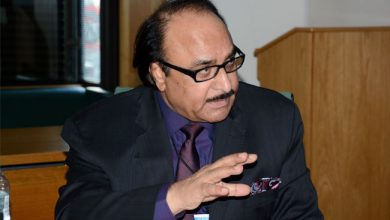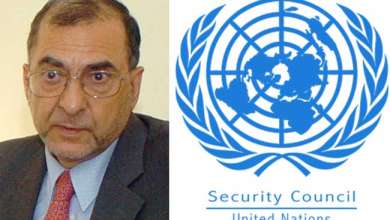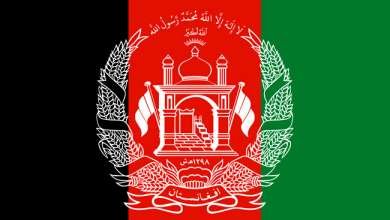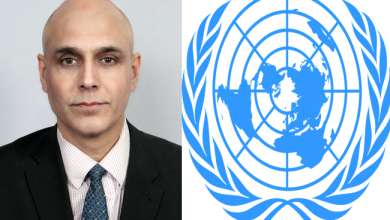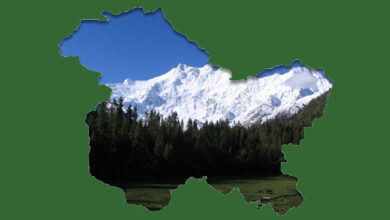The Kashmir Files: Myth or reality
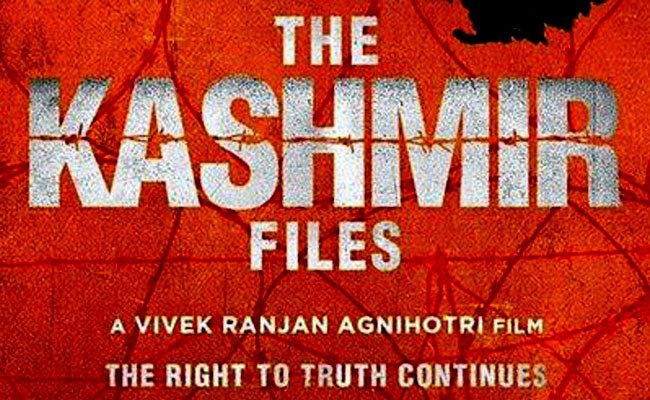
(Third part of four parts)
Dr. Ghulam Nabi Fai May 14, 2022
It is a fact that ‘The Kashmir Files’ presents a wholly false picture of the situation in Kashmir. The agenda of ‘The Kashmir Files’ is to mislead the public about the realities of the ground situation and also about the Kashmir dispute itself.
That is why the Singapore government banned the film and issued a statement on May 9, 2022, that “The film will be refused classification for its provocative and one-sided portrayal of Muslims and the depictions of Hindus being persecuted in the ongoing conflict in Kashmir,” and that “These representations have the potential to cause enmity between different communities, and disrupt social cohesion and religious harmony in our multi-racial and multi-religious society.”
It is worth noting that Bhartiya Janata Party (BJP) has been spreading rumors all along and as early as in 1992 that as many as 40 Hindu temples have been destroyed in Kashmir by Muslims. It is simply not true. Consider this brief excerpt from the February 28, 1993, issue of New Delhi-based ‘India Today’. We quote this not to score a point but to expose the dishonesty of those who today parade themselves as the biggest sympathizers of the Pandit community. “The evidence that the temples were not demolished or desecrated by the Muslims as claimed by the BJP, but in riot-like situations by bomb and rocket attacks. That is why the figure includes both temples and mosques. If temples were to be singled out, they could easily have been attacked in village after village. In many places such as Lukh bhawan in Anantnag, it is the Muslim who feed the fish in the pond around which stand three temples.”
It is also a fact that over four thousand Pandit families have remained in the Valley since 1989. No one was touched by the majority community. The Muslim community has helped them to build their religious temples and supported their loved ones during their religious rites, such as cremation.
Daily Kashmir Observer reported that Muslims helped a Hindu family in the cremation process of a man who died in the Maisuma area of Srinagar city on February 8, 2021. According to reports, one Rakesh Kumar breathed his last. Muslim neighbours arranged everything required for the cremation process. Locals said they arranged a priest and shouldered the dead body up to the cremation ground.
India’s leading newspaper, Hindustan Times reported on May 1, 2020. Muslim men help Hindu man’s kin conduct his funeral rites in north Kashmir’s Uri. Due to the lockdown, the relatives of the deceased could not reach the place for his funeral and no vehicle was available to carry the body to the cremation ground. Members of the Muslim community helped in performing the last rites of their Hindu neighbour (54-year-old Shekhar Kumar) in north Kashmir’s Uri town amid the nationwide lockdown. Deceased’s son Ghautam Kumar said that the Muslim community has always helped them in tough times. ‘It was not possible to perform my father’s last rites without their support,’ he said.
India’s another daily, The Hindu, reported on June 5, 2020. “Local Muslims made special arrangements to perform the last rites (of Mrs. Rani Bhat– a Hindu). Firewood was arranged for cremation. The body was also shouldered by Muslims. It’s our duty to ensure that we are with our Pandit neighbours in thick and thin,’ Abdul Qadir, a Muslim villager, said.
New Delhi-based ‘Mirror Now Digital’ reported on Apr 26, 2022 entitled, “Humanity wins! Muslims help perform last rites of Kashmiri pandit woman in J&K’s Kupwara district.” The report says that, “Rita Kumari, a Kashmiri Pandit woman residing in Lalpurah area in the border town of Lolab died due to some age-related ailments. As the news of her death spread, people from the Muslim community residing in the area reached her place and joined the Pandit family in conducting her last rites, as reported by News18. A large number of local Muslims carried her bier to the crematorium and helped her family in the cremation which was done as per Hindu tradition.”
Joginder Singh Raina of the All-Party Sikh Coordination Committee (APSCC) said “Kashmir is about Kashmiriyat which means brotherhood…Sikhs settled in city during the turmoil but never went away but now Kashmiri Pandits should also come and live together like us.”
Sanjay Tickoo, a Kashmiri Pandit said that if his political and social identity and rights could be guaranteed under majority rule, he would favour an independent Kashmir.
Ved Bhasin, veteran journalist, and Editor-in-Chief of Kashmir Times said on July 24, 2009 that the Right of Self Determination cannot remain confined to either deciding to join India or Pakistan. It can be an independent state as well, it is for the people of the State to decide. No solution can be found by ignoring the people of Jammu and Kashmir, who are the basic party to the Kashmir dispute.
Shinzani Jain, an Indian independent researcher wrote in The HOOT on April 24, 2017, “Seven years later the demand for azadi is omnipresent. The walls, shutters and even stones are adorned with slogans such as “We will fight till independence”, “We want freedom”, “Kashmir is not a part of India” – all demonstrating the sentiments and aspirations of the people in Kashmir.
Shinzani Jain added, “Kashmiris do not want to be recognized as ‘Indians’. They prefer a distinct acknowledgement of their identity as ‘Kashmiri’.”
She continued, “Our democratic ethos must remind us that it is imperialistic and colonial to coerce Kashmiris to accept India’s cause in Kashmir, by hook or by crook. Equally imperialistic, materialistic, and patriarchal is the obsession with ‘winning over’ a population that has been incessantly demanding independence and integrity for decades now.”
She concluded by saying, “The absence of reportage on the everyday life and turmoil of the people makes it hard for people in India to gauge the nature of the conflict, scale of resistance and the demands of people in Kashmir. The boundaries of our discourse on Kashmir have prevented us from opening our minds to these realities thereby creating an unbridgeable gap between the aspirations of Kashmiris and aspirations of Indians. No resolution to this conflict is possible unless we shatter and transcend these boundaries.
Independence is not a novel view of the Kashmir question. When India first brought the issue to the United Nations, its representative, Ambassador Sir Gopalswamy Ayyangar set out three options for Jammu and Kashmir: (a) accession to India, (b) accession to Pakistan and (c) independence.
Columnist Swaminathan Aiyar wrote in 2008 in The Times of India “We promised Kashmiris a plebiscite six decades ago. Let us hold one now, and give them three choices: independence, union with Pakistan, and union with India. Let Kashmiris decide the outcome, not the politicians and armies of India and Pakistan.”
It is alleged that Pandits trusted their Muslim compatriots who let them down. The fact is that they did not. At this crucial point in Kashmir’s recent history, Pandits let themselves be swayed by a chronic mistrust of their Muslim compatriots. They fell into a trap devised by those who do not – and cannot – wish their community well. Rather than seek an understanding with the leading elements of the Kashmiri Resistance Movement, they became willing victims of a scare campaign carefully plotted by the enemies of the resistance. The brutal forces of Indian occupation wanted them out of Kashmir to misrepresent – indeed, to disfigure – the resistance as an anti-Hindu campaign and also to clear the field for acts of mass slaughter and rape arson. We doubt that Pandits can be happy with the results. This was a fatal blunder. That is the sad part of the story. The happy part is that the blunder is reversible.
We all know that the Pandits languishing in the refugee camps in Jammu, Delhi and elsewhere were victims of the tragedy of Kashmir for which the Government of India must take responsibility. Only Governor Jagmohan made this Pandit community flee and desert Kashmir at its hour of trial. They were made to abandon their own people. It is a pity that India is using these helpless victims of India policy as pawns in a cynical propaganda game. Kashmiri Pandits want to return to their homes. Muslim families, despite their own plight, are ready to welcome them back. But I am afraid that Indian authorities will try to score points in the debates. To them human rights are of secondary importance.
Pandit brethren need to realize that they have had hideous proof since 1990 of what their exile in India means. They were not only uprooted; they were also told lies. They were being kept in Delhi and Jammu in conditions of insult and injury merely to be used as concocted evidence against the resistance in Kashmir. The BJP/RSS government will sabotage every effort towards their rehabilitation with honor. Does Pandit community deserve to be treated with a lack of respect bordering on contempt? Does a single Kashmiri Pandit deserve to be reduced to begging? They have a proud history: does it deserve to be brought to a cruel end?
(To be continued)
Dr. Ghulam Nabi Fai is the Chairman, Washington-based ‘World Forum for Peace & Justice’.
He can be reached at: 1-202-607-6435. or. gnfai2003@yahoo.com

